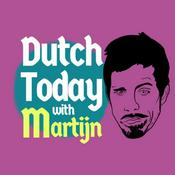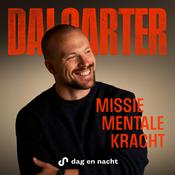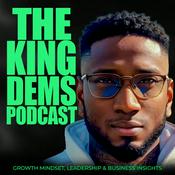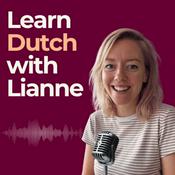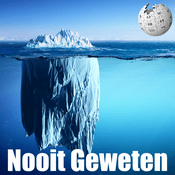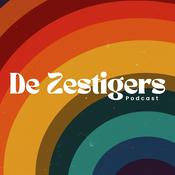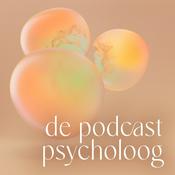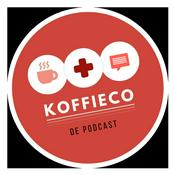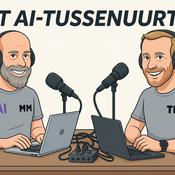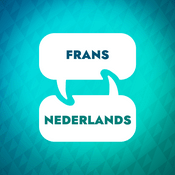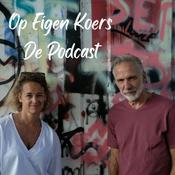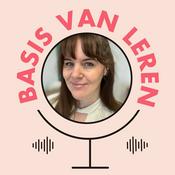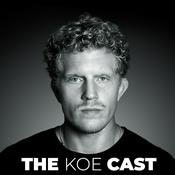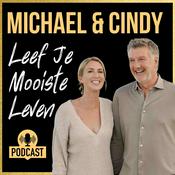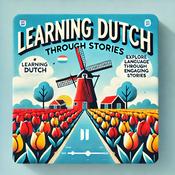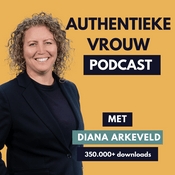79 afleveringen

Think like an alien with Stephen Wolfram
02-1-2026 | 9 Min.
Different observers, from different regions of the ruliad, experience the universe in different ways.To what extent can these different observers communicate their different experiences?Can dogs, with their olefactory ways of mapping their worlds through scent, truly understand humans, with our one-dimensional ways of mapping our world through language?Can humans, with our one-dimensional streams of language, truly understand AI image generators, with their parallel diffusion models?If we ever met aliens, would we be able to communicate with them?How might it be to think like an alien?Stephen Wolfram explores some of the mind-bending implications of different regions of the ruliad giving rise to different experiences of the universe. —Stephen WolframStephen WolframThe Wolfram Physics ProjectWolfram InstituteWolfram Institute Community DiscordReferencesRuliad definitionRuliad article—The Last Theory is hosted by Mark Jeffery founder of Open Web MindI release The Last Theory as a video too! Watch here.Kootenay Village Ventures Inc.

Ruliad + observer = physics ... also aliens
18-12-2025 | 12 Min.
The ruliad is every possible computation. What could you possibly say about such an enormous, all-encompassing object?Well, that’s where we come in.Particular observers sample the ruliad in particular ways.Observers like us sample the ruliad in ways that give rise to physics as weknow it.Ruliad + observer = physics.In this excerpt from my conversation with Stephen Wolfram, he explores how physics, mathematics and biology all arise from this same enormous, all-encompassing object, the ruliad.He gets to aliens, too, asking such provocative questions as how far from us in rulial space are the nearest aliens?—Stephen WolframStephen WolframThe Wolfram Physics ProjectWolfram InstituteWolfram Institute Community DiscordReferencesRuliad definitionRuliad articleSecond Law of Thermodynamics articleSecond Law of Thermodynamics historyMetamathematics articleMetamathematics bookBiological evolution articleBiological evolution follow-upComputational irreducibility—The Last Theory is hosted by Mark Jeffery founder of Open Web MindI release The Last Theory as a video too! Watch here.Kootenay Village Ventures Inc.

How to simplify the causal graph
11-12-2025 | 35 Min.
The hypergraphs generated by Wolfram Physics are complex and chaotic.The multiway graphs that trace every possible evolution of these hypergraphs become extremely complex and extremely chaotic after only a few iterations.The causal graphs that plot which of the events in these multiway graphs has to happen before which of the other events look like spaghetti.If we’re going to find mass/energy or momentum in Wolfram Physics – or special relativity or general relativity or quantum mechanics – then the causal graph is the place to look.But if we’re going to have to find all of physics in a causal graph that looks like spaghetti, then I give up.If we’re going to find all of physics in the causal graph, then we’re going to have to simplify.How to simplify the causal graph?Two ways:use a simpler rule; andcollapse multiple nodes representing the same event into a singlenode.Don’t worry, by the time we’re done, that’ll all make sense!This is the pivotal episode in my exploration of Wolfram Physics. It establishes a firm foundation what comes next. From here on, we’ll be able to make serious progress... towards mass/energy, momentum, special relativity, general relativity and quantum mechanics.—The Last Theory is hosted by Mark Jeffery founder of Open Web MindI release The Last Theory as a video too! Watch here.The full article is here.Kootenay Village Ventures Inc.

Where's Mark?
15-11-2025 | 1 Min.
It’s been a while since my last episode of The Last Theory or Open Web Mind.Where am I?It might look like I’m lazing in the sun, but actually I’ve been working hard.For The Last Theory, I’ve been working on a long episode, more involved than any I’ve ever made, and more important than any I’ve ever made.It’ll unlock mass/energy, momentum, special relativity, general relativity and quantum mechanics.And I’ve been working on Open Web Mind, too, making serious progress towards launch.So I’m sorry for the delay, but it’ll be worth the wait.In the meantime, make sure you’re subscribed to my newsletters at lasttheory.com and openwebmind.com to be the first to know when the train’s leaving the station.—The Last Theory is hosted by Mark Jeffery founder of Open Web MindI release The Last Theory as a video too! Watch here.Kootenay Village Ventures Inc.

Black holes in the hypergraph with Stephen Wolfram
29-8-2025 | 21 Min.
Electrons may be tiny black holes propagating through the hypergraph.After all, electrons and black holes have much in common: they’re carriers of pure motion, they’re all the same – from the outside, at least – and we don’t know what’s going on inside them.Just as black holes may cloak the remants of collapsed civilizations, so electrons may hold secret histories of their paths through the universe.Stephen Wolfram takes this idea further. If particles, such as electrons, are the carriers of pure motion in physical space, what are the carriers of pure motion in branchial space and rulial space? Maybe, in rulial space, it’s the discrete concepts we use to communicate ideas from one mind to another.These are fascinating speculations, but Stephen insists that we need not know what a particle is to make progress with his framework. We can understand energy without knowing what a particle is; we can understand momentum without knowing what a particle is; maybe we can even derive Quantum Field Theory from the Wolfram model without ever knowing what a particle is.—Stephen WolframStephen WolframThe Wolfram Physics ProjectWolfram InstituteWolfram Institute Community DiscordReferencesBlack holesBlack hole mergersKuratowski’s theoremWagner’s theoremConway’s Game of Life resources include Alan Dewar’s implementation, Chris Rowett’s Life Viewer, playgameoflife.com and ConwayLife.comEnergy is the flux of causal edges through spacelike hypersurfacesCausal graphQuantum electrodynamicsQuantum chromodynamicsThe Standard ModelRichard FeynmanFeynman diagramQuantum Field TheoryS-matrix or scattering matrixVirtual particlesBrancial spaceRulial spaceComputational irreducibilityVideos and imagesEddy line over the Eastern Pacific video by GOES imagery: CSU/CIRA & NOAA public domainPerpetual Ocean 2: Western Boundary Currents video and image by NASA’s Scientific Visualization Studio / Greg Shirah reproduced under NASA Images and Media Usage GuidelinesFlight around a black hole video and image by NASA’s Goddard Space Flight Center / J. Schnittman and B. Powell via NASA’s Scientific Visualization Studio reproduced under NASA Images and Media Usage GuidelinesMerging Black Holes video by NASA / Dana Berry via NASA’s Scientific Visualization Studio reproduced under NASA Images and Media Usage GuidelinesBlack Holes: Monsters in Space (Artist’s Concept) image by NASA / JPL-Caltech reproduced under NASA Images and Media Usage Guidelines—The Last Theory is hosted by Mark Jeffery founder of Open Web MindI release The Last Theory as a video too! Watch here.Kootenay Village Ventures Inc.
Meer Onderwijs podcasts
Trending Onderwijs -podcasts
Over The Last Theory
Luister naar The Last Theory, Dutch Today: leer Nederlands met Martijn en vele andere podcasts van over de hele wereld met de radio.net-app
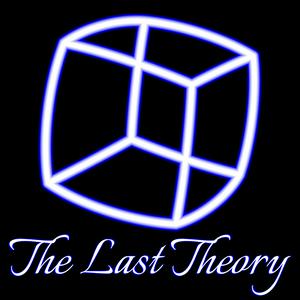
Ontvang de gratis radio.net app
- Zenders en podcasts om te bookmarken
- Streamen via Wi-Fi of Bluetooth
- Ondersteunt Carplay & Android Auto
- Veel andere app-functies
Ontvang de gratis radio.net app
- Zenders en podcasts om te bookmarken
- Streamen via Wi-Fi of Bluetooth
- Ondersteunt Carplay & Android Auto
- Veel andere app-functies


The Last Theory
download de app,
luisteren.
